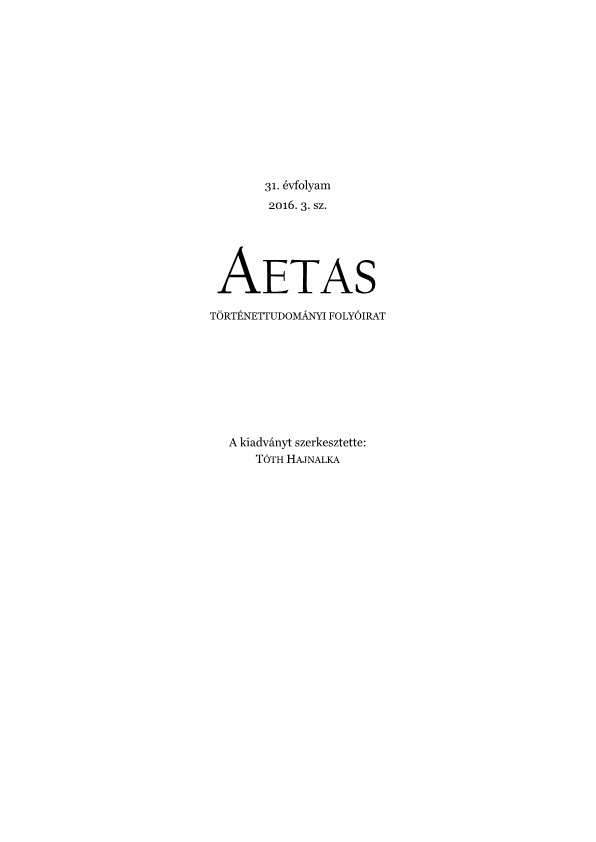A 17. századi Habsburg-hírszerzés „gyöngyszeme”.Hans Caspar budai titkos levelező (1646–1659) munkássága
A gem of 17th-century Habsburg intelligence – The activites of Hans Caspar, secret correspondent in Buda (1646–1659).
Draft for a longer overview.
Author(s): János SzabadosSubject(s): 17th Century
Published by: AETAS Könyv- és Lapkiadó Egyesület
Summary/Abstract: During the Ottoman occupation, Buda played an important role in the communication between the Habsburg and the Ottoman empires. After the peace of Zsitvatorok in 1606, Vienna had the opportunity to build up the system of “secret correspondents”, with one of its major stations in Buda. In the middle of the 17th century, Alexander Fischer, a renegade interpreter born in Vienna, who could also speak Hungarian, occupied the post. As the chiaus of Hüseyn at the side of the reigning pashas of Buda, he had access to important information, for example, about the raids on the border castles. He wrote his reports to the Vienna court under the pseudonym Hans Caspar, dated from Tata. In the turbulent 1650s, the role of Hans Caspar became more valuable to the Habsburg intelligence service, moreover, we have evidence that he even provided information to the men of the Transylvanian princes, thanks to his knowledge of Hungarian. At the same time, he most probably shared the information he gained during his missions in Vienna and Győr with his official superior. By analysing what Hans Caspar did as a spy, we can claim that his activity does not completely fit the typology the literature has drawn up about the operation of the “secret correspondents”.
Journal: AETAS - Történettudományi folyóirat
- Issue Year: 2016
- Issue No: 3
- Page Range: 77-92
- Page Count: 16
- Language: Hungarian

